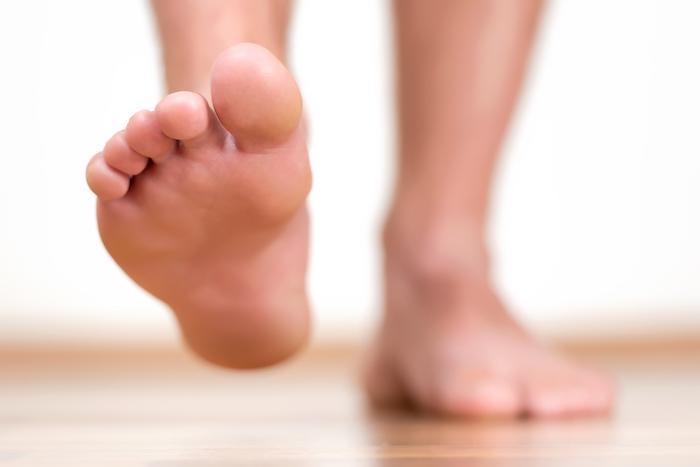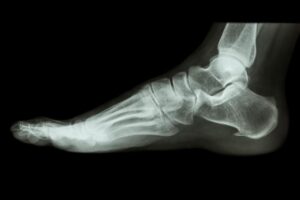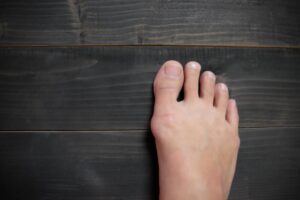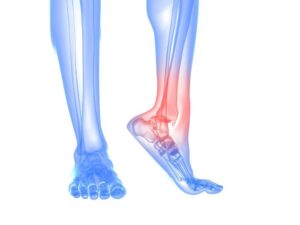How Do Flat Feet Affect Your Overall Health?

Made up of 26 bones and more than 100 muscles, ligaments, and tendons, your feet support the weight of your entire body, day in and day out. They take a beating when you literally pound the pavement walking down the street, on a tennis court, or on a dance floor. If your feet aren’t as strong as they could be, are out of proper alignment, or you suffer from common foot problems like flat feet, it can affect your whole body and even cause injuries.
Flat feet, also known as fallen arches, is one of the most common causes of foot pain and misalignment. Could your foot pain and other symptoms be attributed to flat feet? Dr. Ryan Golub of Arizona Foot Health in Phoenix, explains the causes of flat feet and effective treatment options.
Why do I have flat feet?
You could have been born genetically predisposed to flat feet, or you may have developed the condition over time. Sometimes children have flat feet because their feet don’t develop properly. In some cases, they grow out of it, but others have flat feet and the accompanying foot and ankle problems throughout adulthood.
Not everyone with flat feet experiences pain from the condition. However, if you do have foot or ankle problems, you might not realize that the source of your foot and heel pain is often the result of flat feet.
Some of the most common causes of adult-onset flat feet include the following risk factors:
- Weak arches
- Age: Flat feet are most common over the age of 40
- Bone or tendon damage in your feet
- Obesity: Extra pounds makes it harder for your feet to bear your weight
- High blood pressure reduces blood flow to your feet
- Stress fractures and previous foot injuries
- Diabetes
- Arthritis
- Pregnancy
Muscle diseases and nervous system disorders, including muscular dystrophy and cerebral palsy, may also contribute to flat feet.
Can flat feet affect my overall health?
Surprisingly, flat feet can affect several different aspects of your overall health and wellness.
Because fallen arches or flat feet fail to give your feet — and body — the support they need, you’re more likely to experience foot pain and other conditions, including plantar fasciitis.
Plantar fasciitis — a condition in which the thick ligament that connects your heel to your toes becomes inflamed and overstretched — is more common in people with flat feet. Plantar fasciitis causes severe heel pain, especially in the morning when you take your first few steps out of bed.
Flat feet often lead to another common condition called overpronation. If you have overpronation, it means your ankles roll inward when you walk, which often leads to foot and ankle pain and discomfort.
Additionally, because your feet are the foundation for your entire body, flat feet and overpronation can lead to improper spinal alignment. It’s also common to experience hip, knee, and lower back problems as a result of untreated flat feet. When your feet don’t support your weight properly and your spine becomes misaligned, you may experience pain in your legs and lower back and never even make the connection that the source of your discomfort comes from your feet.
How can I treat my flat feet?
Whether you were born with flat feet or developed fallen arches with age, it’s not a reversible condition. However, you can find ways to manage the pain and even prevent the condition from worsening. The best treatments for flat feet help provide the support that you’ve lost by fallen arches and also help strengthen your feet and ankles.
Dr. Golub customizes a treatment plan to help you manage pain and other symptoms. Some of the treatments he recommends may include the following:
- Physical therapy to strengthen your feet and ankles
- Nonsteroidal anti-inflammatory drugs (NSAIDs) like Advil (ibuprofen) and Aleve (naproxen sodium)
- Nutritional changes and weight loss
- General exercise and foot exercises
- Foot and ankle braces or splints
- Custom foot orthotics for your shoes
If you have flat feet, it’s imperative to wear the right type of supportive shoes. Orthotic inserts not only correct your foot position, but also correct your posture, taking the pressure off your hip, knee, and ankle joints. It’s true that when your feet feel better, it can do wonders for the rest of your musculoskeletal system.
If you have flat feet that are causing you pain, simple treatments can often make the condition more livable and alleviate chronic discomfort. We can find a solution that works best for you.
Give us a call at 602-973-3888 to schedule an appointment, or book online to take the first step toward improving your foot and overall health.
You Might Also Enjoy...
The Achilles Heel
Given Arizona’s climate, patients are able to remain active year round. It’s why we all chose to live here. But…
Alleviating Back Pain and Other Benefits of Custom Orthotics You Didn’t Know About
Would you ever imagine that custom foot orthotics could improve your quality of life? That’s what many people say after…
9 Helpful Tips to Prepare Your Home Before Bunion Surgery
When moderate interventions, such as wearing wider shoes or using pads in your shoes, fail to ease your bunion pain…
When Should You Go to the Doctor for an Ingrown Toenail?
In most cases, you can nurse an ingrown toenail at home with over-the-counter pain medication, topical antibiotic creams, and soaking…
6 Home Exercises to Keep Your Ankles Strong
Ankles that feel wobbly and weak are vulnerable to injury. If you play sports, run, jump, or just walk often,…
Is Surgery My Best Option For Treating Bunions?
You have a bunion and it isn’t pretty, but if your bunion is small enough, or doesn’t hurt, you may…






